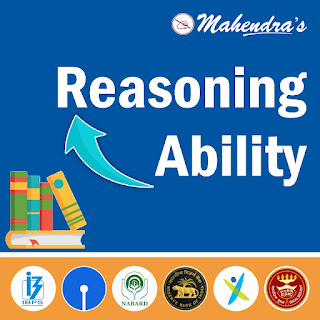Dear Readers,
Mahendras has started special quizzes for IBPS | RBI | SBI | NABARD so that you can practice more and more to crack the examination. This IBPS | RBI | SBI | NABARD Exam special quiz series will mold your preparations in the right direction and the regular practice of these quizzes will be really very helpful in scoring good marks in the Examination. Here we are providing you the important question of English Language for the IBPS | RBI | SBI | NABARD .
Q1-10. Read the following passage carefully and answer the questions given below it. Certain words have been given in bold to help you locate them while answering some questions.If space constraint is preventing you from setting up a garden at home, you can always set up a miniature garden inside your house. In fact, a glass bowl or a dish can easily become your garden. Bottle gardens or terrariums and dish gardens, as they are called, act as miniature self-reliant eco systems. Also, they enhance the ambience of your drawing room as well.
Making a bottle garden is not a difficult job. Select either a glass bowl or a glass aquarium for making a bottle garden. Wash it with soap and hot water. Rinse well in cool water and leave it to dry. Line the bottom of the container with small gravel similar to those used in aquariums to about one inch thickness. This guarantees sufficient drainage of water. It is desirable to add a thin layer of charcoal above this, as charcoal effectively purifies the atmosphere. The soil used has to be sterilised by ‘sun drying’. Sterilised soil and sand should be mixed in equal proportion. Mix some organic manure into this and fill one-fifth of the container with the mixture. If a bottle with a narrow neck is selected, a cardboard funnel can be used to fill planting mixture into the bottle.
Planting in narrow necked bottles can be done using sticks. After planting, one can decorate the bottle garden using pebbles, marbles, shells, small statues and so on. Clean the dust on leaves and inside the glass container using a soft cleaning brush. Water should be sprayed sparingly and the bottle/aquarium should be closed with a tight-fitting lid. Place it where it gets bright but indirect light.
The preferable location is in a bright room or near a bright window. The water inside the bottle vaporises and condenses as droplets on the glass walls. These droplets roll down and water the soil. Thus the water is recycled effectively. If dryness is noticed inside the bottle, then only water needs to be sprayed again.
If there is a lot of condensation, open the bottle for a while now and then. Remove dying leaves as soon as you notice them. Excess growth of plants inside the bottles can be removed using scissors or stick connected with a blade at its tip. The plants should be replaced after one or two years.
This concept is very popular in Western countries. These gardens require less care and are easy to maintain. You can even grow small, succulent flowering plants such as Table Rose in these glass gardens. Set plants in the terrarium in an aesthetically pleasing arrangement. The tallest plant should go in first, then the intermediate and finally the smallest plants. Don’t overcrowd the terrarium, leave space for the plants to grow.
Dish gardens are also a trend among city dwellers. They require bright indirect sunlight. Dish garden can be placed in direct sun also. Flat or curved dishes without drainage hole can be used for making dish gardens. Small pieces of gravel and charcoal are placed at the bottom; then put a mixture of soil, sand and manure on top of it. One fourth of the space is left empty at the surface.
Small varieties of Cactus, Cryptanthus, Haworthia and succulent plants can be planted in these dishes. Water should be applied in such a way that the dish garden never sits in excess water. Dish gardens can also be decorated using pebbles and toys. Irrigation and care should be done according to the nature of the plants.
Q1 What is the correct method of watering a ‘dish garden’?
01. Watering it only once a week.
02. Sprinkling water over the plants every now and then
03. Watering till the dish garden gets filled
04. Excess water should not stay in the ‘dish garden’
05. Not mentioned in the passage
Q2 Which of the following is TRUE about ‘a dish garden’?
01. They should be placed away from direct sunlight
02. Flat or curved dishes without drainage hole can be used
03. All varieties of Cactus can be planted in these gardens
04. The plants should be replaced after one or two years
05. Irrigation and care should be done on a monthly basis
Q3 Why should plants be arranged aesthetically in a bottle garden?
01. The person can show his gardening skill through it
02. The garden is pleasing to the eye of the spectator
03. The plants have sufficient space to grow
04. Only 2 and 3
05. Only 1 and 2
Q4 The mixture, with which bottles are filled for the terrarium, contains-
01. Soil, manure, dry leaves
02. Dry leaves, soil, sand
03. Soil, manure, sand
04. Pebbles, soil, manure
05. Soil, sand, soap water
Q5 Why are ‘Miniature gardens’ in vogue, nowadays?
01. People cannot set up huge garden due to space constraint
02. Miniature gardens do not require ‘watering’ regularly
03. All kinds of plant can be grown in a ‘miniature garden’
04. Due to increased awareness for ‘environment degradation’
05. They are economical and require less care
Q6 Which of the following can be used to decorate bottle garden?
A. shells B. small statues C. pebbles D. marbles
01. Only C
02. Only A and B
03. Only C and D
04. All except B
05. All of the above
Q7 Choose the word most SIMILAR in meaning to the word given in bold, as used in the passage.
Purifies
01. Liberates
02. Cleans
03. Admits
04. Regenerates
05. Filters
Q8 Choose the word most SIMILAR in meaning to the word given in bold, as used in the passage.
Remove
01. Take off
02. Replace
03. Raise
04. Grab
05. Take out
Q9 Choose the word which is most nearly the OPPOSITE in meaning as the word given in bold as used in the passage.
Sparingly
01. Gently
02. Peacefully
03. Easily
04. Carefully
05. Occasionally
Q10 Choose the word which is most nearly the OPPOSITE in meaning as the word given in bold as used in the passage.
Water
01. Moisturizes
02. Rain
03. Dry
04. Spoil
05. Vitalize
Answers:-
Q.1 (4)
Q.2 (2)
Q.3 (4)
Q.4 (3)
Q.5 (1)
Q.6 (5)
Q.7 (2)
Q.8 (5)
Q.9 (4)
Q.10 (3)

.jpg)







0 comments:
Post a Comment
MAHENDRA GURU